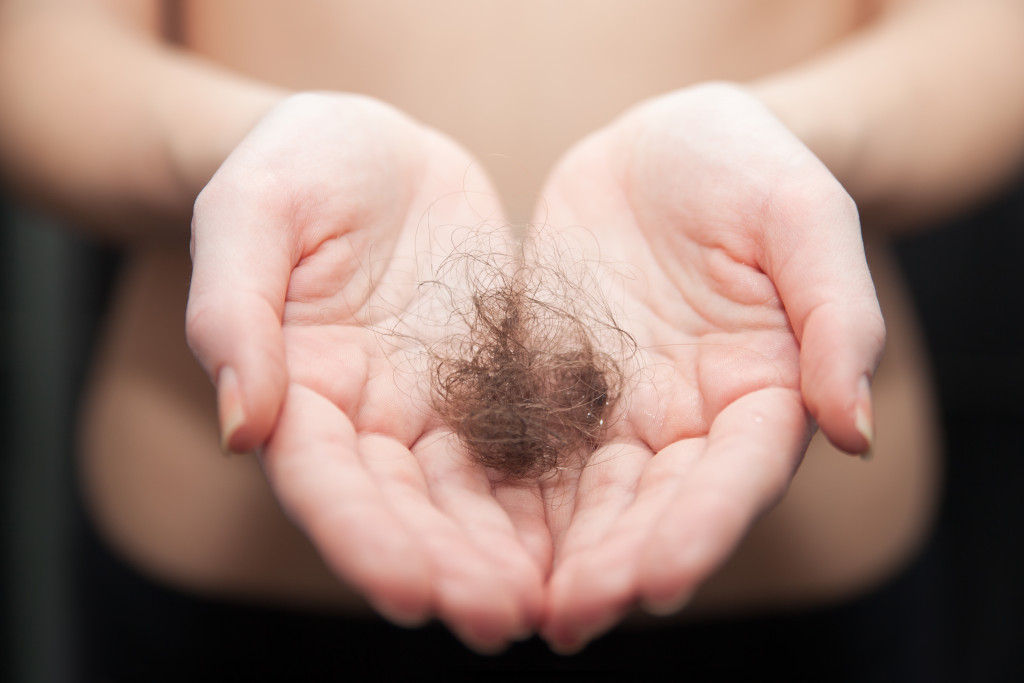During pregnancy, your body undergoes a lot of changes. Aside from the baby bump, you gain weight, you crave certain foods, you get mood swings, you feel backaches, etcetera. But even after giving birth, you may notice that your body is still not back to its normal state. You may be wondering if these changes are normal and if other new mothers are experiencing the same things.
Fortunately, most of these changes that you find can be blamed on your hormones. After giving birth, your body will experience a drop in estrogen and progesterone, triggering changes in your emotions and your body. Here are some of the common things that mothers get concerned about after having delivered their babies:
Baby Blues and Postpartum Depression
Baby blues and postpartum depression both manifest as changes in your temperament. Baby blues is the quick mood changes, highs and lows, typically caused by exhaustion. Postpartum depression on the other hand is more serious where you may feel hopeless and can affect the way you take care of your baby.
Baby blues usually lets up with lessening your stress and taking a worthwhile break from time to time but postpartum depression can last longer and may have deep-seated roots that may require medication and counseling.
Weight Gain
During the time of pregnancy, you might have gained a lot of weight and are now expecting to lose it all after giving birth. But it is completely normal to hold on to the weight gained for almost a full year after labor. It is common for women to struggle with losing the baby weight due to the rise in appetite. With your body producing milk for your baby, you may need more fat and energy to cope with the process.
Unlike before when you feel wary of eating certain foods because of the baby inside you, you may now feel justified to devour anything that you like, which can lead to more weight gain. This can also be the cause of why others find that they now have bigger feet and are adorned with stretch marks. Healthy eating and moderate exercise can help but do not expect to lose it all in just a few months.
Sleeping Problems

Many new mothers will experience postpartum insomnia for the first few weeks after childbirth. Again, it can be caused by the drop in hormones that help you go to sleep. Your body clock might feel off and you just can’t go to sleep at night. This sleep problem can hinder your energy throughout the day and can affect how you care for your baby. But you can make changes in your lifestyle and environment to encourage better sleep.
Meditation is always a good activity for everyone, especially for new mothers, along with breathing exercises for those who suddenly wake up in the middle of the night. Matching your sleep schedule with your baby’s will also help to give you more time to recharge. And of course, you can share the baby duties with your partner or family just to sneak in some shuteye.
Some women will also experience sleep apnea that makes them snore heavily at night and sometimes even choke while sleeping. Anti-snoring devices and several therapies can be prescribed for such cases while surgical procedures like tissue removal and jaw surgery or repositioning are needed when the condition becomes a safety hazard.
Decrease in Sex Drive
You may feel that your sex drive is not as active as you were before pregnancy. Due to your low level of estrogen, you may feel little to no appeal towards having sex for up to 3 months. But as your body adjusts once more to no longer carrying a baby inside you, your hormones will return to normal levels and your sex drive will also go back up in time.
Although, this can come in between couples for a few months after pregnancy and cause relationship problems. Talk about it with your partner to know each others’ needs and address the solutions that can be done as a compromise because your relationship with them is also as important as your responsibility for your baby.
Hair Loss
Some women may panic upon seeing how much hair they lose on a daily after giving birth. But this can be explained, once again, by your hormones. During pregnancy, your hormones promote hair growth and prevent hair loss. After childbirth, the hormones plummet and sudden hair fall that could amount to 9 months of pregnancy starts to happen in just a short period. Eating well can do a lot for your hair but there are other natural steps like avoiding hair styling and taking supplements that you can do to resume normal hair growth.
There is a survey on 100 women and the weird and unpopular bodily changes that they experienced after giving birth that you can look into to help you calm your nerves, in case you didn’t find the changes you were searching for here. But know that you are unique and your body may cope with motherhood differently than others. Most of these are perfectly normal but you can consult with your doctor or a specialist if you feel it is something serious.

